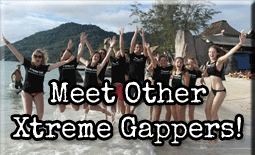Always had a fascination for Sharks?
Now is your change to join a Great White Shark conservation project and help them get rid of there infamous reputation.
This hands on programme takes place in Kleinbaai, in South Africa, where you work together with the best know Great White Shark Conservation team in the world!!
On our website you find more information on the Great White Shark Conservation programme , but we can imagine you have more questions. Maybe the faq below help you to answer some of them. If not e mail us on [email protected]
F.A.Q. (Frequently Asked Questions)
Eligibility?
This program is aimed at assisting in the development of students, training them in the area of biological sciences, creating an awareness on Great Whites to Conservationist, eligibility is thus limited to exceptional naturalists who can show a „real world‟ dedication to research, management or conservation of animals or ecosystems.
For how long?
Our project runs traditionally for 21 days, but there is a minimum stay of two weeks and a maximum of four weeks (in exceptional cases this may be negotiable). The preferred date of arrival is the 1st of each month, so that coordination can more easily be arranged.
Where do we do our Field Work?
There is only eight licensed Shark Diving Companies in Gansbaai, and we are fortunate enough to work from Shark Team, a licensed cage diving vessel. It is a tourist boat, so most days we will be out with tourists, but there will be days when you have the vessel to yourselves.
Do I need a VISA?
No. You will not be employed by us, nor paid. Most tourists get a 3-month / 90 day Tourist / Visitor VISA upon entry in South Africa. However, we do recommend that you contact the South African Embassy or Consulate and confirm this fact. Do not leave this inquiry for too late. We recommend that you contact the South African Embassy or Consulate in your country ASAP. If your application period is for a period longer than three months, or if you plan to travel in South Africa prior or after your internship for a period extending 90 days, you will have to apply for a Tourist / Visitor VISA application.
Do I need insurance?
Yes. When you are accepted in this programme, you will have to sign liability, copyright documents, as well an agreement that you are knowingly partaking in dangerous activity. You will not be covered for accidents or illnesses, so please do organize your own medical and health insurances. You may apply for a normal travel insurance policy. Chances that you will be injured by a marine predator are non-existent if you follow the safety guidelines and do not try anything foolish which we would not approve anyway. But you will be working on a boat in conditions which can, at times, be less than comfortable. And accidents on a boat may occur, so it is important to be covered in case of an emergency or accident. Be sure to have an insurance cover for your entire stay in South Africa.
Do I need any specific vaccination or medication before coming to South Africa?
No, we are far from the Malaria, and there are no strange African diseases which you could pick up (that is if you respect the same safety rules as anywhere else in the world).
What do I need to bring?
Some old jeans; tops and shoes/boots to use on the boat, warm clothing; a wind breaker jacket; good waterproof clothing; factor 30+ sun block and a wide brim hat. You don‟t have to bring any bed sheets. Comfortable, non-slipping shoes is an absolute must – you can buy a pair of Wellington‟s locally, or get some Crocs. Investing in some Polaroid sunglasses is also essential.
Do we have weekends off?
No, but yes… The weather along the Western Cape of South Africa is not stable, and the sea does not allow field work every day. Nevertheless Kleinbaai is comparatively sheltered, allowing us to go out at sea very often. You will have days off whenever the weather and sea condition do not allow field work, and no other work on the data or maintenance is needed. Sometimes, we have long periods during which the weather is nice and after 4-5 days at sea, we will then take a couple of days break. Why? Well, being at sea is very tiring, constantly balancing yourself, baking in the hot sun and being blown by the winds, so after a few days at sea, your body will need a rest.




